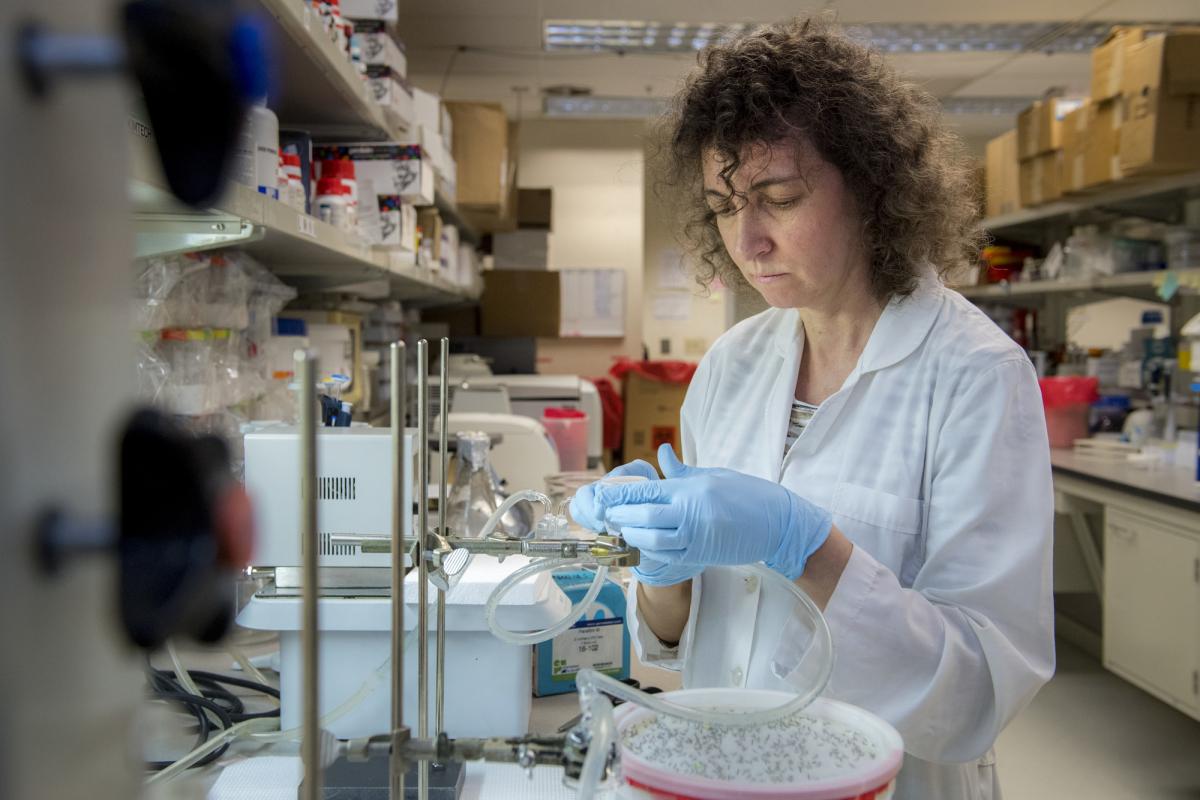Mass spectrometry reveals mosquito metabolism complexities may lead to more effective control strategies

Globally, close to half a million people die annually due to mosquito-borne diseases. Researchers like Dr. Patricia Scaraffia and her team at Tulane's School of Public Health and Tropical Medicine Vector-Borne Infectious Disease Research Center, and her collaborators Dr. Thomas D. Horvath at the Baylor College of Medicine/Texas Children´s Hospital Microbiome Center, and Dr. Shai Dagan at the Israel Institute for Biological Research are part of a growing body of researchers turning to mass-spectrometry (MS)-based metabolomics to study mosquito metabolism.
Mosquitoes are arthropods, invertebrate animals of the phylum Arthropoda. They are also known as vectors because they can transmit pathogens. Diseases spread to people by female mosquitoes include the Zika virus, West Nile virus, chikungunya, dengue, and malaria.
Currently, mosquitoes that transmit disease-causing pathogens infect hundreds of millions of people globally and cause approximately half a million deaths annually. Despite extensive worldwide attempts to reduce mosquito populations, current strategies remain only partially effective at controlling these vectors of disease-causing pathogens.
Scientists are just beginning to understand the metabolic underpinnings of vector-host-pathogen interactions. Metabolism is a complex process that involves the entire set of chemical transformations present in an organism. It includes anabolism, the synthesis of molecules, and catabolism, the degradation of molecules.
Mass spectrometry (MS) is an analytical technique used to measure the mass-to-charge ratio of ions. This project used MS-based metabolomics, which is capable of performing quantitative analyses with high-degress of selectivity, specificity and sensitivity to identify metabolites, substances made or used when an animal's body breaks down nutrients, drugs, or chemicals.
MS-based metabolomics is a mature technology in many scientific disciplines. However, it is still an emerging area of research to study mosquito metabolism and the vector-host-pathogen interplay. MS-based metabolomics may bring researchers closer to the goal of controlling these vectors of disease-causing pathogens.
Variations in metabolite abundance over the lifespan of mosquitoes have provided researchers with critical clues for understanding how mosquitoes cope with humidity and temperature extremes and exposure to toxic compounds and pathogens. Applying MS-based spectrometry and stable-label isotope tracing brings researchers closer to understanding the various stages of metabolism at which metabolites are processed. Narrowing in on these processes can be utilized to design and implement more effective mosquito control strategies.
"Our study is a timely resource for researchers of both metabolomics and vector biology interested in how applied mass spectrometry-based metabolomics can be used to design and implement more effective mosquito control strategies," says Dr. Scaraffia. "It also highlights recent developments, lists essential questions for future research, and provides input on new directions for the field."
This study brought up the following questions that need to be explored in further study:
- How do existing/proposed mosquito-control strategies impact mosquito metabolite concentrations/profiles over time?
- What are the unique features that exist in the mosquito metabolome compared to close phylogenetic species? Might these differences be leveraged to develop selective mosquito-control strategies?
- Can MS-based metabolomics approaches be used to discover small-molecule inhibitors that prevent pathogen infection and transmission in the mosquito host?
The research team hopes that integrating metabolomics with other 'omics' and modern genome-editing techniques will expand to study additional mosquito species and further advance mosquito research. They see this research uncovering metabolic links between the small-molecule kinetics and pathways in mosquitoes and those involved in the mosquito–host-pathogen interface. It will enhance the knowledge of mosquitoes as a whole organism rather than a sum of their parts. Therefore, collaborations between experts in several fields will continue to be essential in this effort.
The team also sees that the continued improvement of mass spectrometers, databases, and data-processing software will identify unknown metabolites that will play a significant role in unraveling more delicate mosquito metabolic interactions and critical regulatory mechanisms. In addition, discoveries in this field can assist in the development of new metabolism-based strategies to reduce vector populations and disrupt parasite development or virus replication in both human hosts and mosquitoes.
This study is financially supported by the U.S. National Institutes of Health, National Institute of Allergy and Infectious Diseases Grant R01AI146199.
